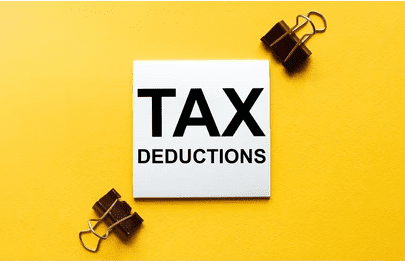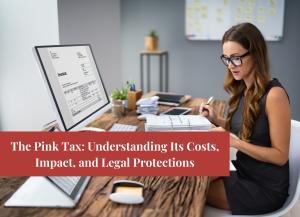Best Tax Deductions
For self-employed physicians, other medical professionals, and mental health professionals, understanding available tax deductions can significantly reduce taxable income. Even if you’re employed by a hospital or a smaller practice, there are notable costs you should report. Here are the key deductions you should be aware of: 👎
1. Operating Expenses:
✅Self-employed physicians can deduct costs for office equipment, computers, mobile phones, office supplies, internet, and phone services.✅Expenses for work-related software, including patient record programs, are also deductible. Track all these expenses and consult an accountant to ensure you claim every eligible deduction.
2. Professional Dues:
✅ Licensing fees and organizational dues are largely tax-deductible for medical.✅This includes board exam fees, medical license renewals, membership dues, and continuing education costs.
✅ Deduct any expenses related to professional development or education, even if not Subscription costs for professional or technical publications are also deductible.
3. Work Space:
✅ If you rent an office or building solely for work, building management and upkeep costs are deductible.✅ Track rent, utilities, and other office expenses to report them on your tax
✅ If you use a home office, you can also deduct the portion of your home used for patient care.
4. Travel:
✅ All overnight business travel, such as attending conferences or seminars, can be claimed as a business expense.✅ This includes lodging, airfare, and related.
5. Medical Equipment
✅ Expenses for necessary medical equipment and supplies are.6. Staff Costs:
✅ Salaries and wages for employees, including assistants or receptionists, are tax-deductible.7. Business Mileage:
✅ If you use your vehicle for work, you can deduct business mileage according to IRS standard mileage rates.8. Health Care Premiums:
✅ Self-employed individuals can deduct health insurance premiums as a business.✅ Contributions to a Health Savings Account (HSA) are also
9. Retirement Savings:
✅ Contributions to retirement accounts like IRAs or 401(k)s are✅ The IRS sets annual contribution limits; aim to save the maximum amount possible. Consider a Roth IRA for tax advantages.
10. Charitable Donations:
✅ Qualifying charitable contributions can be deducted, up to your total adjusted gross income for the year.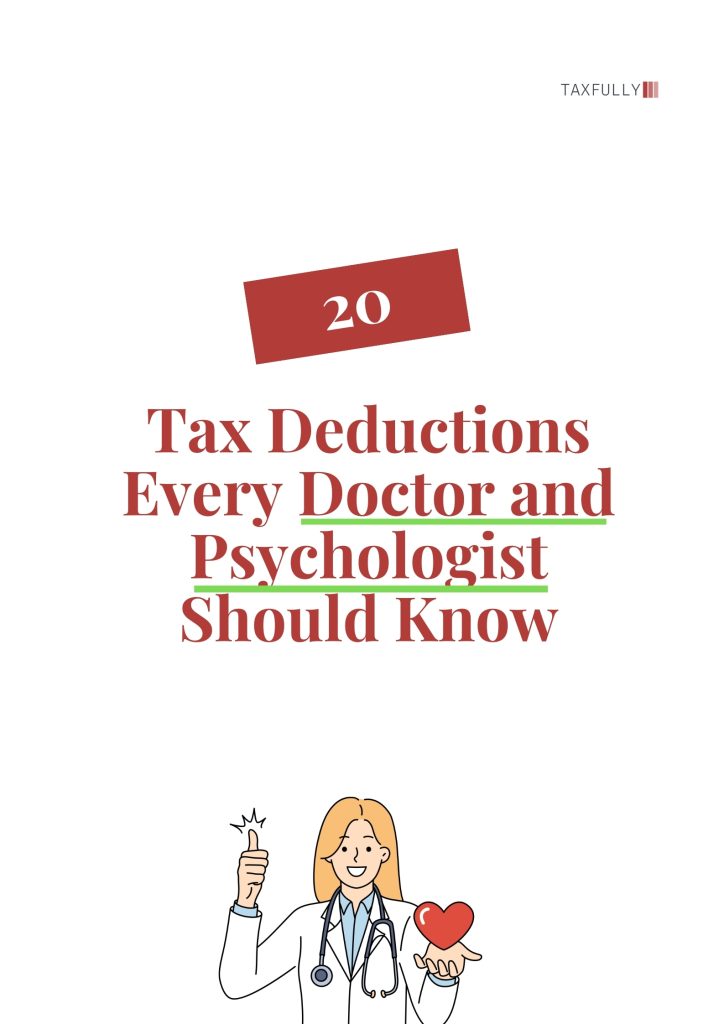
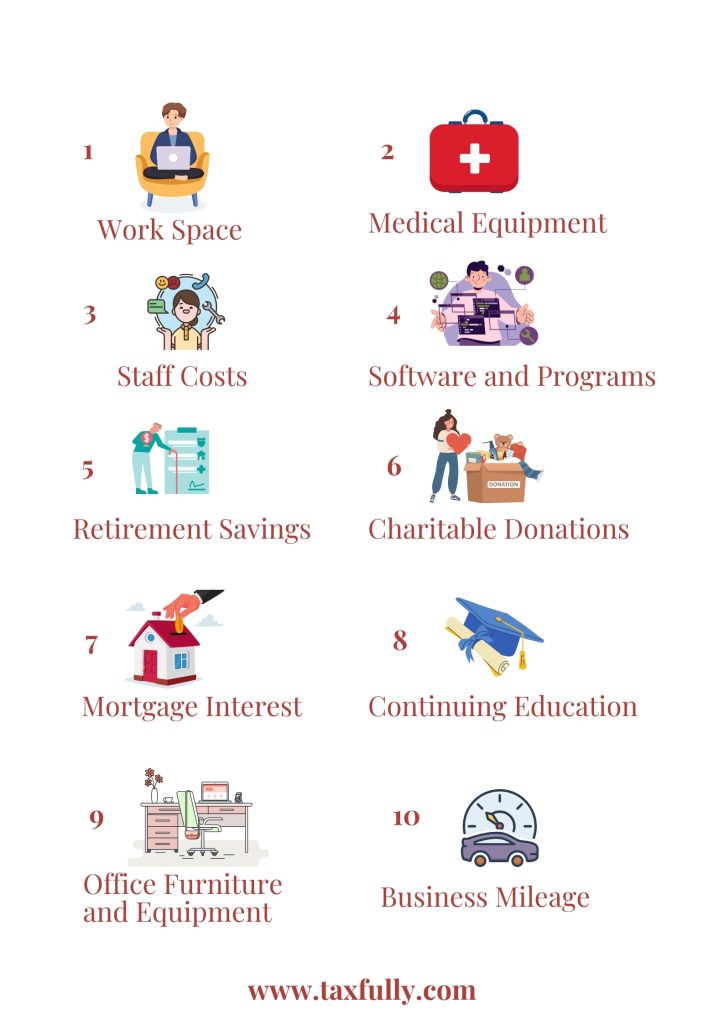
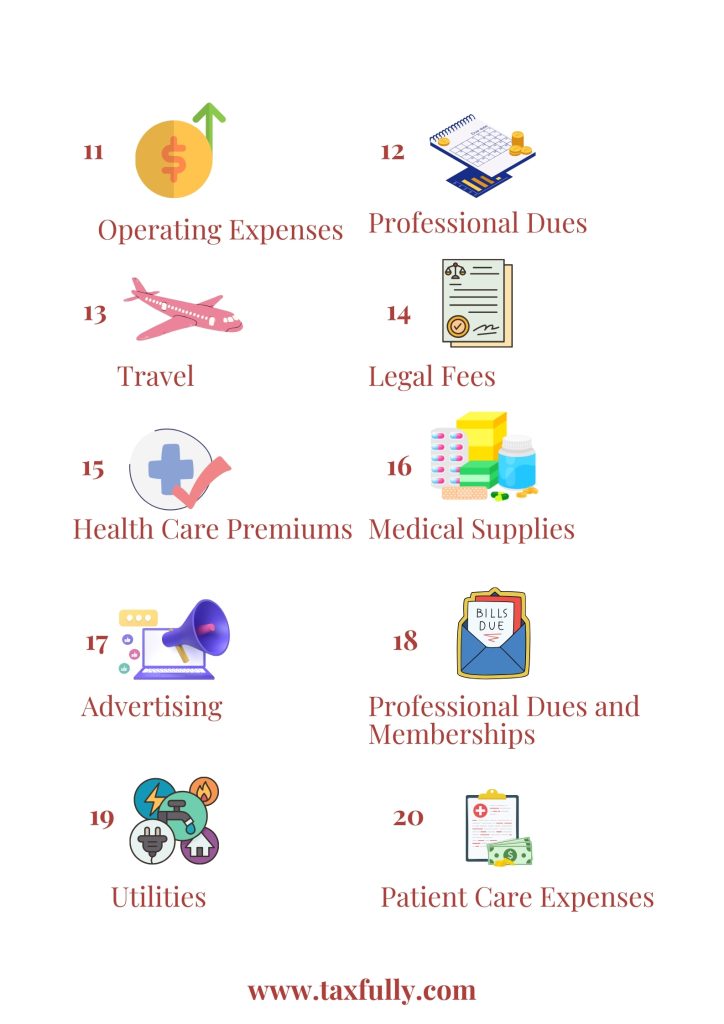
11. Mortgage Interest:
👉 Home mortgage interest is The amount depends on when you signed your mortgage, but most or all of the interest paid can be deducted.12. Continuing Education:
👉 Costs for seminars, online courses, training, and educational materials that enhance your skills are deductible.13. Software and Programs:
👉 Expenses for software like Zoom, QuickBooks, Microsoft Office, and scheduling tools like Calendly are deductible if used for your practice.14. Office Furniture and Equipment:
👉 Furniture, decorations, and equipment such as desks, chairs, computers, and therapy-related items are You can also claim depreciation on these items over time.15. Advertising:
👉 Costs for business cards, social media promotions, website expenses, flyers, and ads in newspapers or magazines can be written off as advertising expenses.16. Professional Dues and Memberships:
👉 Annual or monthly fees for professional associations, magazines, and memberships are deductible.17. Legal Fees:
👉 Fees for setting up an LLC, trademarking your name, or other legal services can be deducted.18. Utilities:
👉 Utility costs like electricity, water, and garbage for a home office or rented space can be written off.19. Medical Supplies:
👉 Regular purchases of medical supplies necessary for running a practice are fully20. Patient Care Expenses:
👉 Any expenses directly related to patient care, such as specialized medical equipment or treatment materials, are deductible.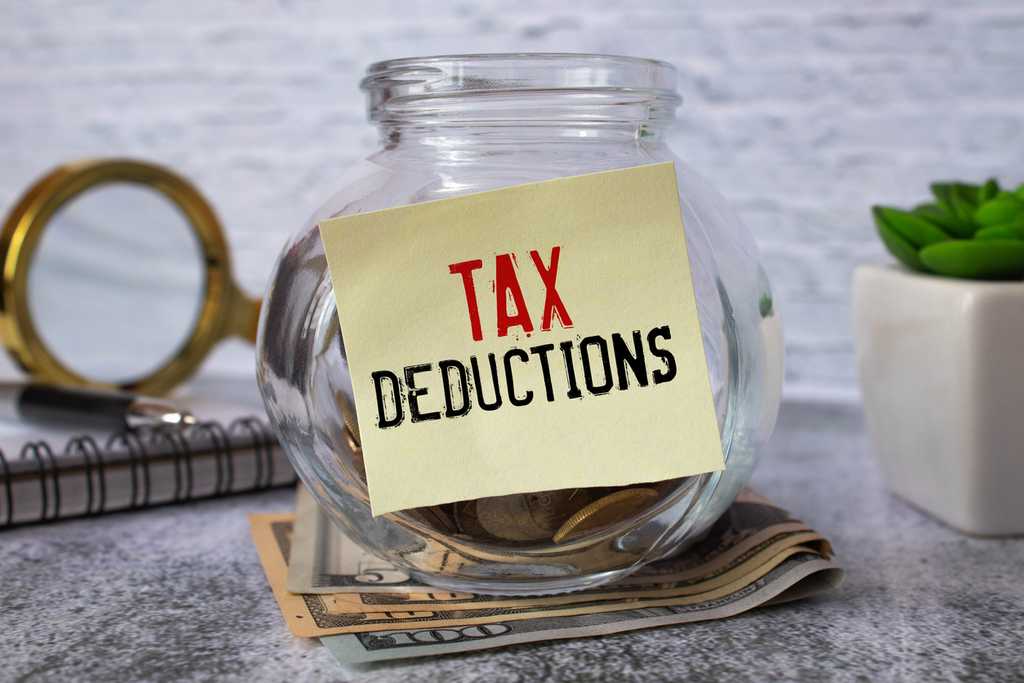
Additional Tips
- Seek professional tax advice: Tax regulations are intricate and constantly evolving. A qualified accountant can assist you in optimizing your deductions and reducing the risk of audits.
- Maintain thorough records: Keep detailed documentation of all business expenses and deductions throughout the year to simplify tax preparation.
- Access a free tax deduction list: Numerous resources offer extensive lists and guides on deductible expenses and the process for claiming them.

